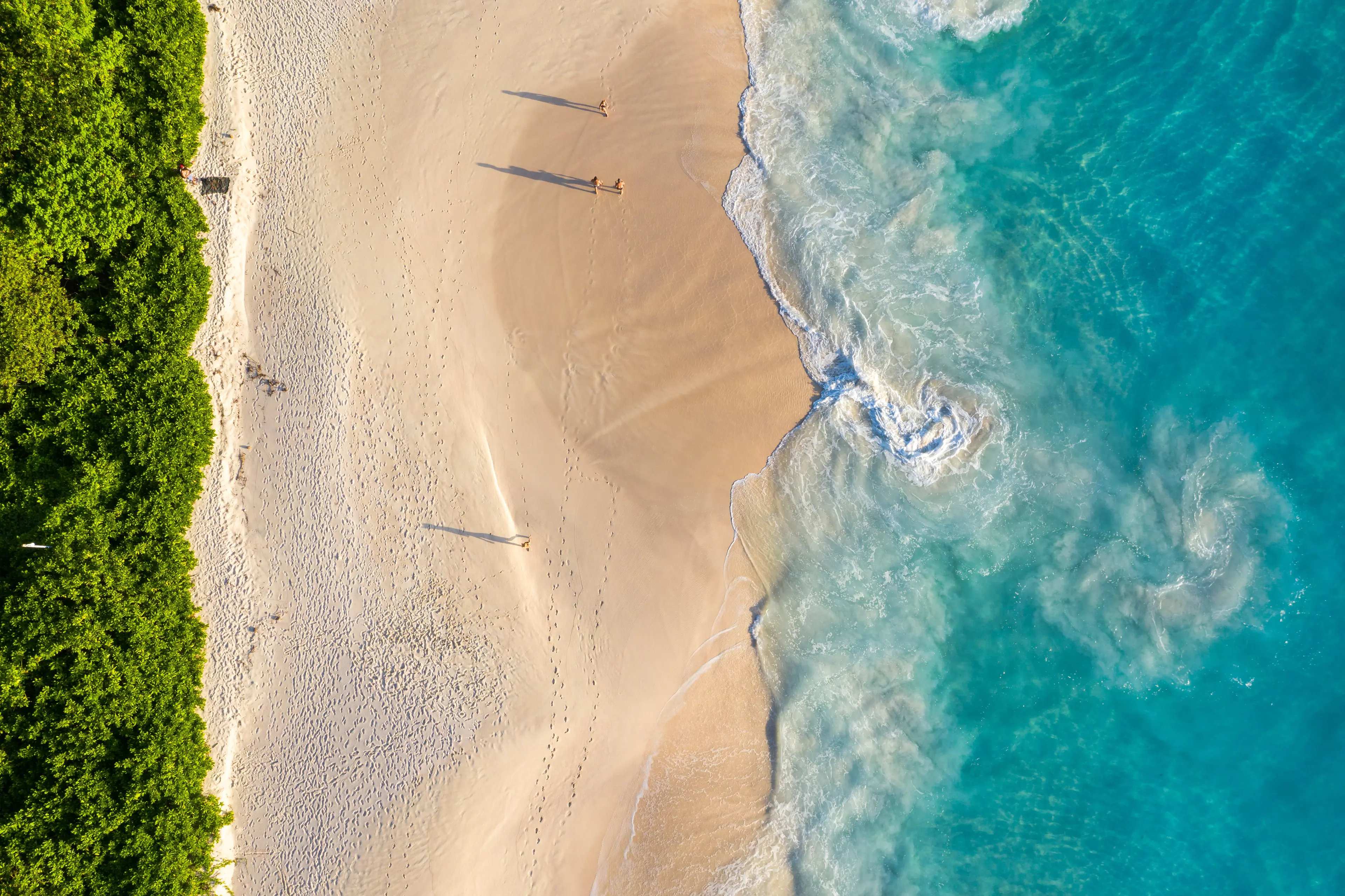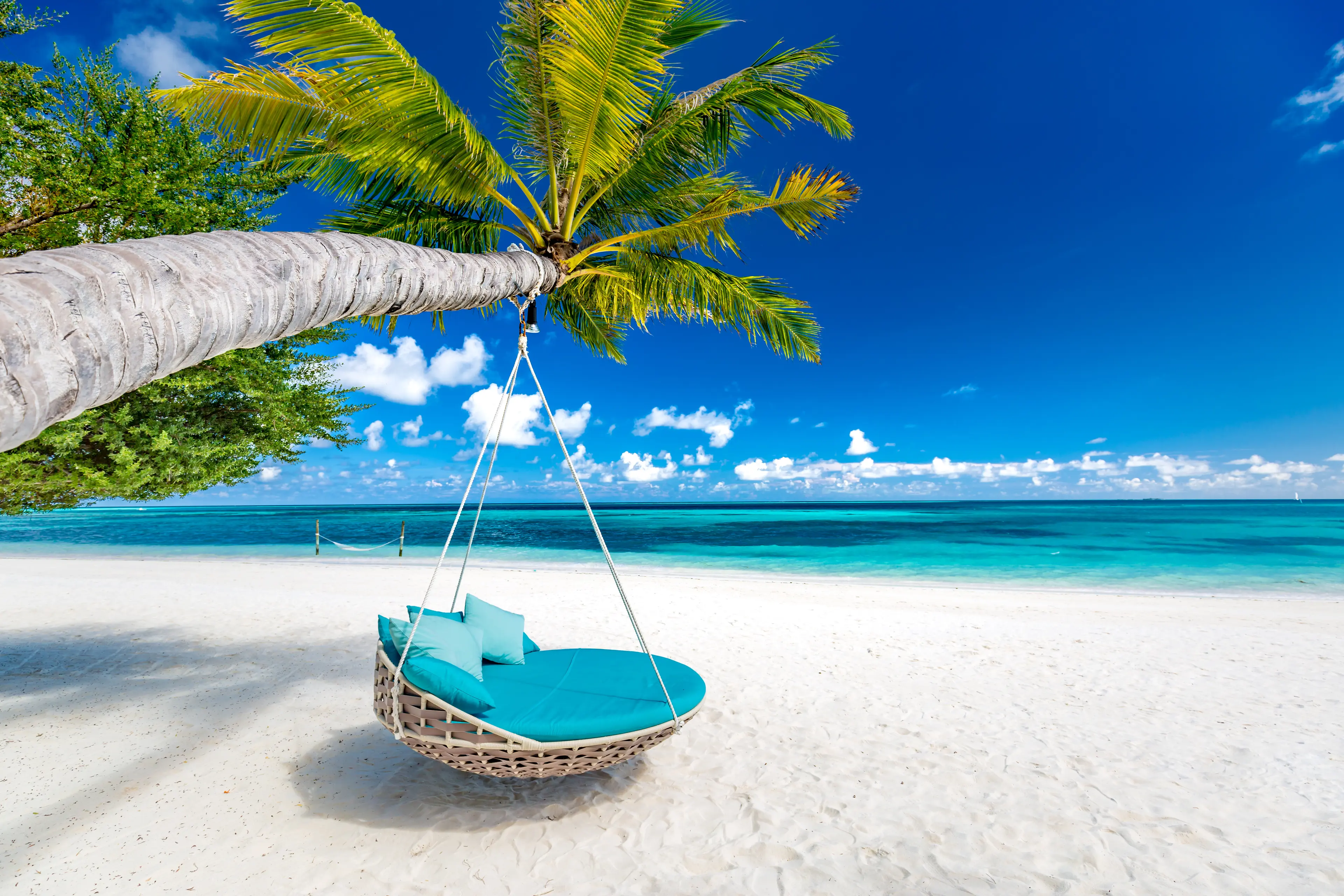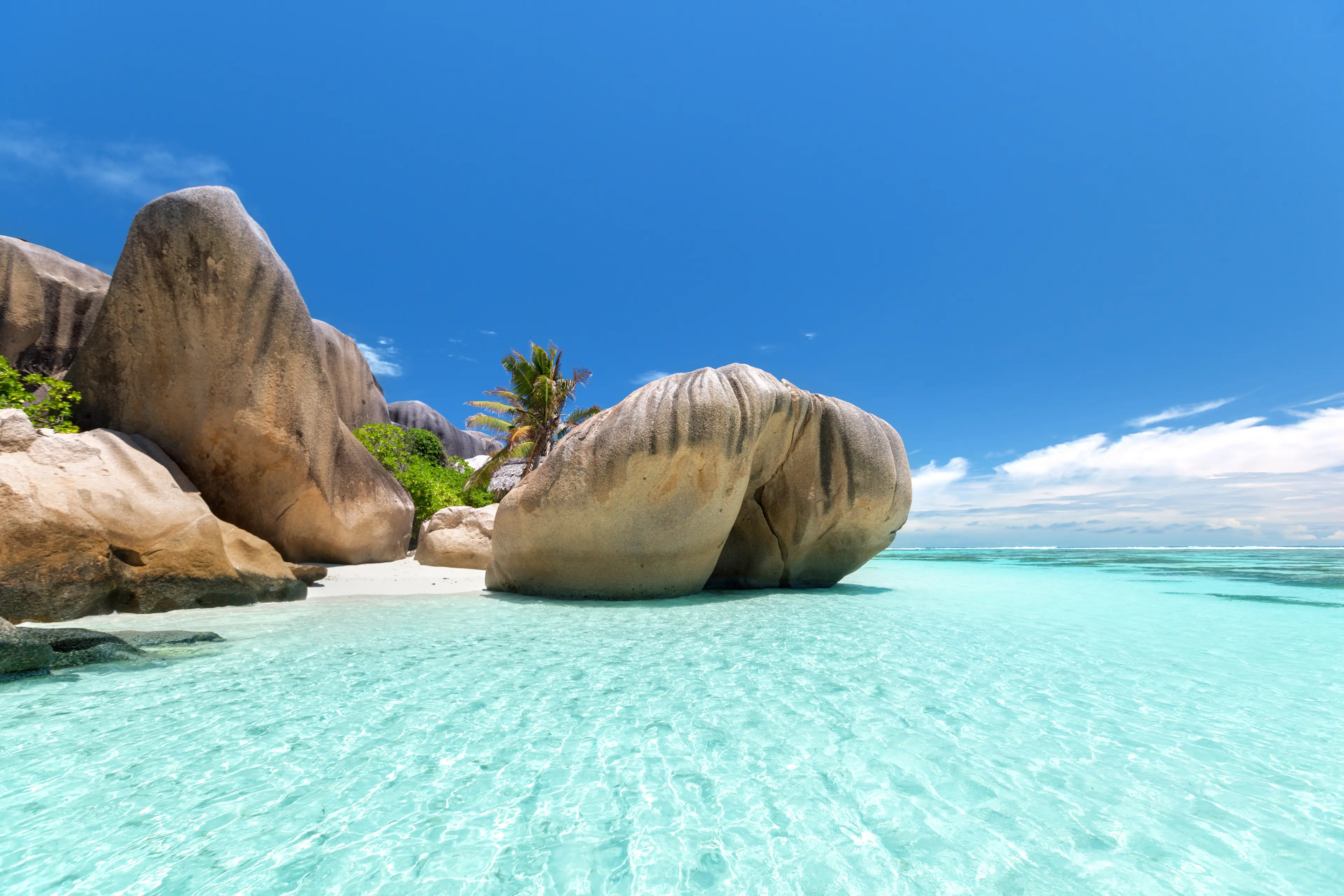5-Day Family Adventure in Seychelles: Food, Wine and Outdoor Fun
Seychelles
5 days

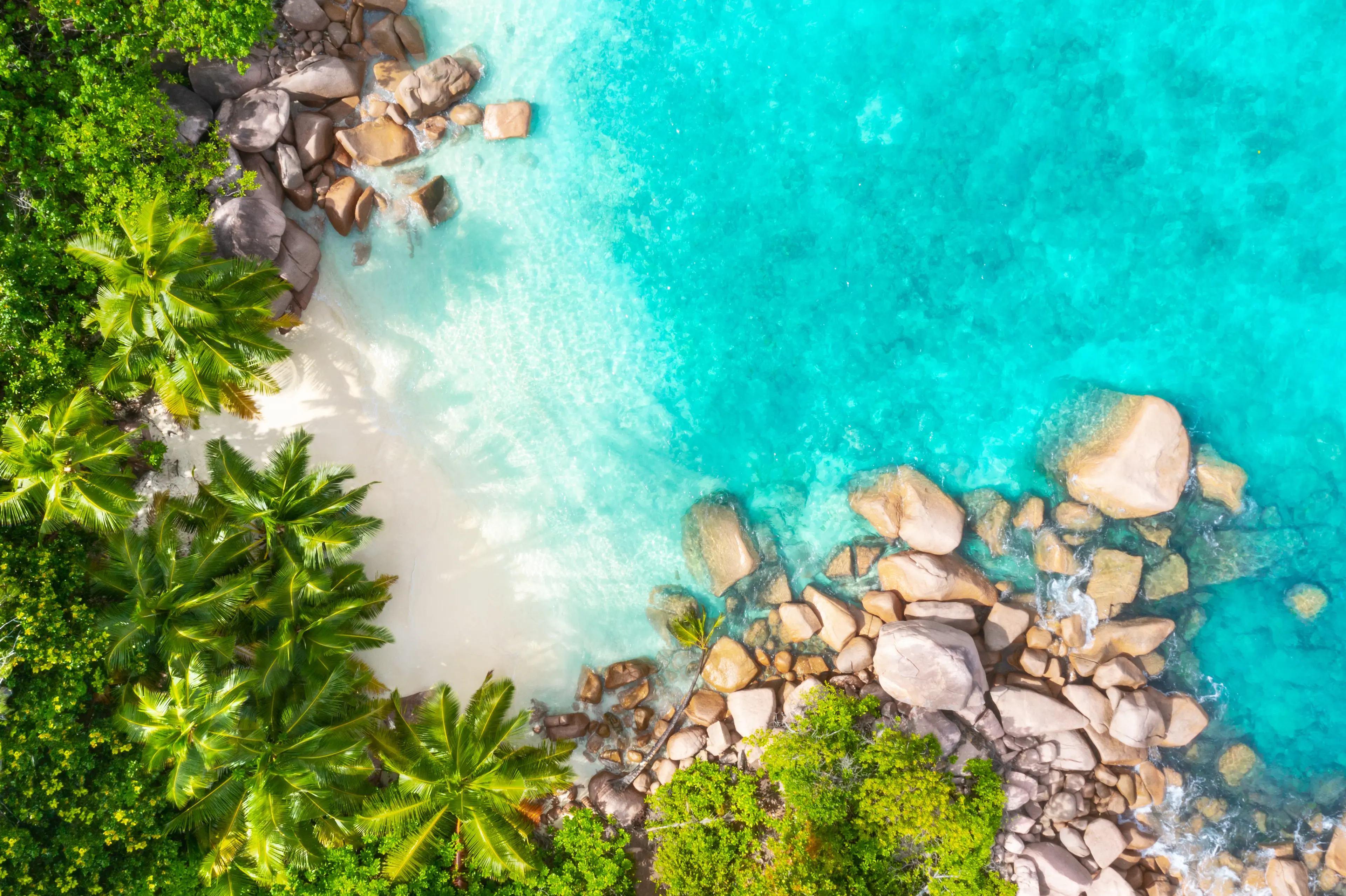
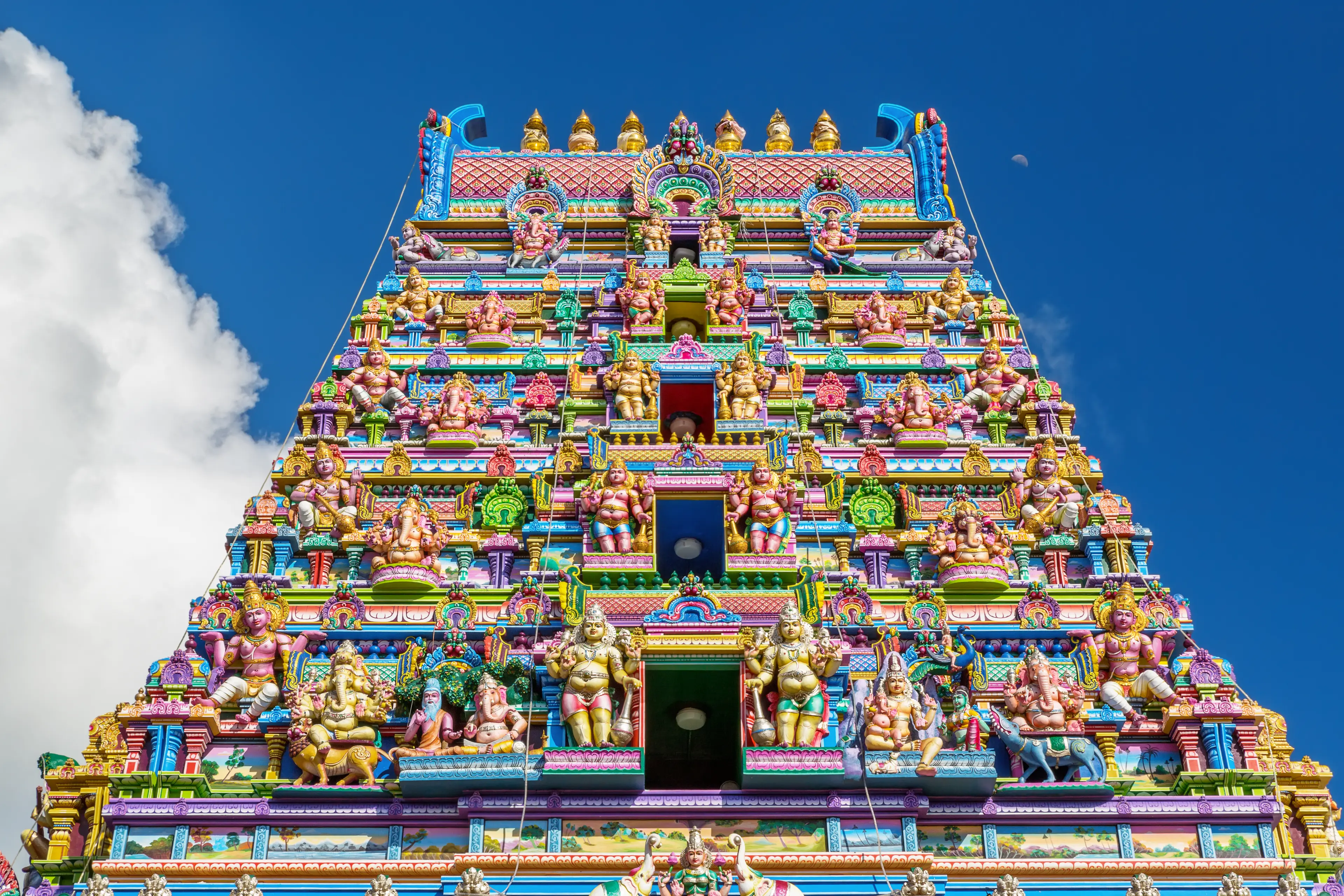
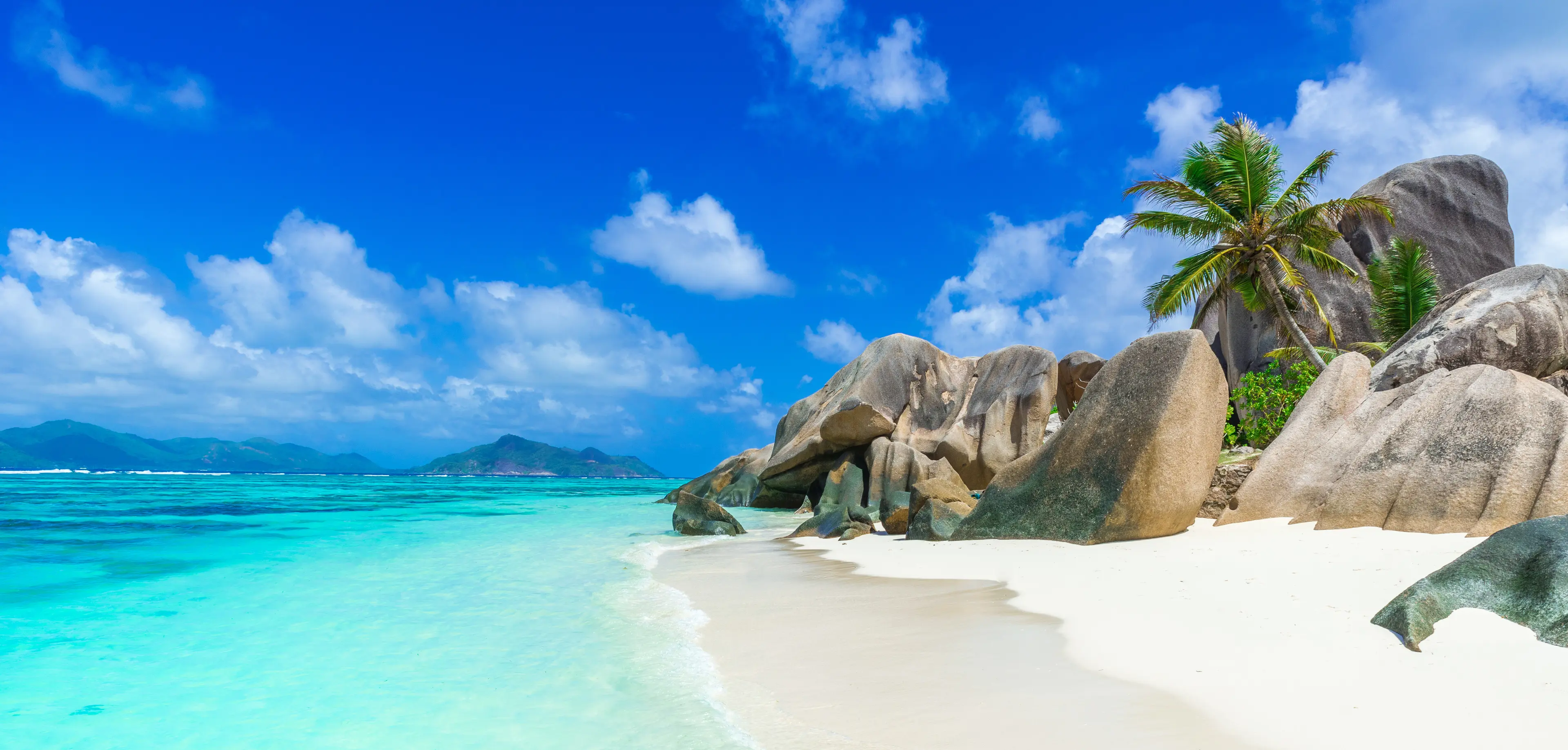

About Seychelles
Discover the paradise of Seychelles, an archipelago of 115 islands in the Indian Ocean. Renowned for its pristine beaches, clear turquoise waters, and unique biodiversity, Seychelles offers a tranquil retreat for nature lovers and beach enthusiasts. Explore the UNESCO World Heritage Sites of Vallée de Mai on Praslin Island and Aldabra Atoll, home to the world's largest population of giant tortoises. Dive into the vibrant marine life, indulge in Creole cuisine, or simply relax on the powdery white sands of Anse Lazio. Seychelles also offers a rich cultural heritage with a blend of French, British, African, and Indian influences. Whether you're seeking a romantic getaway, an adventurous trip, or a family vacation, Seychelles promises an unforgettable experience.
5-Day Itinerary
Day 2
Botanical Gardens and Praslin Island
Morning
Start your day with a visit to the Seychelles National Botanical Gardens. The gardens are home to a wide variety of plant species, including the famous Coco de Mer palm.
Lunch
Enjoy a picnic lunch in the gardens. You can pack a lunch from a local bakery or deli, or purchase food from one of the vendors in the gardens.
Afternoon
Spend the afternoon exploring the island of Praslin. Here, you can visit the Vallee de Mai Nature Reserve, a UNESCO World Heritage Site known for its prehistoric forest.
Dinner
Enjoy a dinner at a local restaurant in Praslin. The island is known for its fresh seafood and Creole cuisine.
Evening
End your day with a leisurely stroll along the beach, enjoying the cool evening breeze and the sound of the waves.
Day 3
Marine Park and La Digue Island
Morning
Start your day with a visit to the Sainte Anne Marine National Park. Here, you can enjoy snorkeling and see a variety of marine life.
Lunch
Enjoy a picnic lunch on one of the park's islands. You can pack a lunch from a local bakery or deli, or purchase food from one of the vendors in the park.
Afternoon
Spend the afternoon exploring the island of La Digue. Here, you can visit the L'Union Estate, a traditional coconut plantation.
Dinner
Enjoy a dinner at a local restaurant in La Digue. The island is known for its fresh seafood and Creole cuisine.
Evening
End your day with a leisurely stroll along the beach, enjoying the cool evening breeze and the sound of the waves.
Day 4
Aldabra Atoll and Mahe Island
Morning
Start your day with a visit to the Aldabra Atoll, a UNESCO World Heritage Site. Here, you can see the world's largest population of giant tortoises.
Lunch
Enjoy a picnic lunch on the atoll. You can pack a lunch from a local bakery or deli, or purchase food from one of the vendors in the atoll.
Afternoon
Spend the afternoon exploring the island of Mahe. Here, you can visit the Mission Lodge Lookout, which offers stunning views of the island.
Dinner
Enjoy a dinner at a local restaurant in Mahe. The island is known for its fresh seafood and Creole cuisine.
Evening
End your day with a leisurely stroll along the beach, enjoying the cool evening breeze and the sound of the waves.
Day 5
Museum Visit and Beach Relaxation
Morning
Start your day with a visit to the Seychelles Natural History Museum. Here, you can learn about the islands' unique flora and fauna.
Lunch
Enjoy a traditional Creole lunch at a local restaurant. The Seychellois cuisine is a fusion of African, French, Chinese, and Indian influences, offering a unique and flavorful experience.
Afternoon
Spend the afternoon exploring the island's beaches. Seychelles is known for its stunning white-sand beaches, and this is the perfect opportunity to relax and soak up the sun.
Dinner
For your final dinner, enjoy a beachside barbecue. Freshly caught seafood is a staple in Seychelles, and there's nothing like enjoying it with the sound of waves in the background.
Evening
End your day and your trip with a leisurely stroll along the beach, enjoying the cool evening breeze and the sound of the waves.
Attractions in Itinerary (9)

1Local Market
A bustling market where locals sell fresh produce, handmade crafts, and unique Seychellois items.
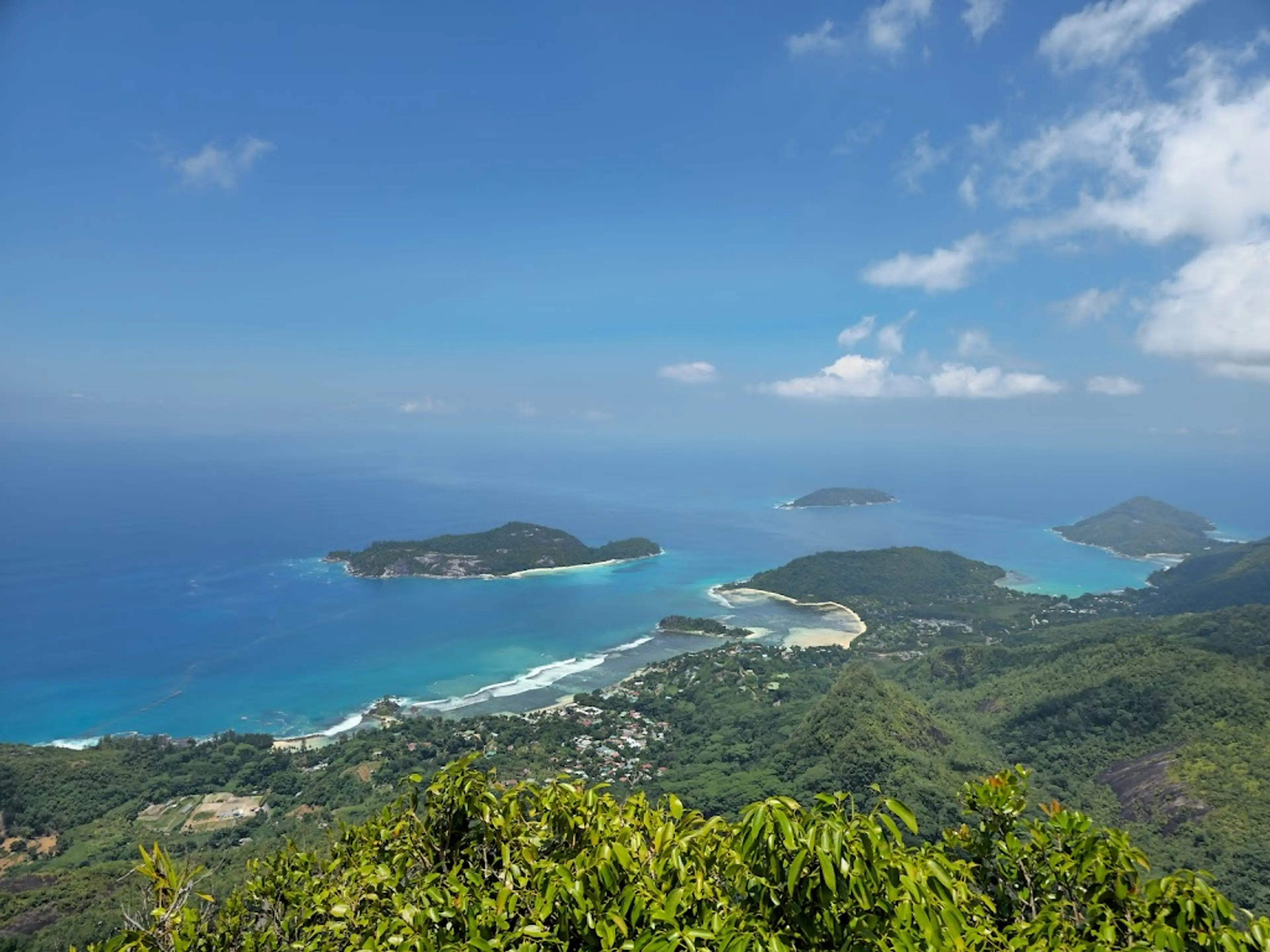
2Morne Seychellois National Park
The largest national park in Seychelles, offering hiking trails with stunning views of the coastline and surrounding islands.
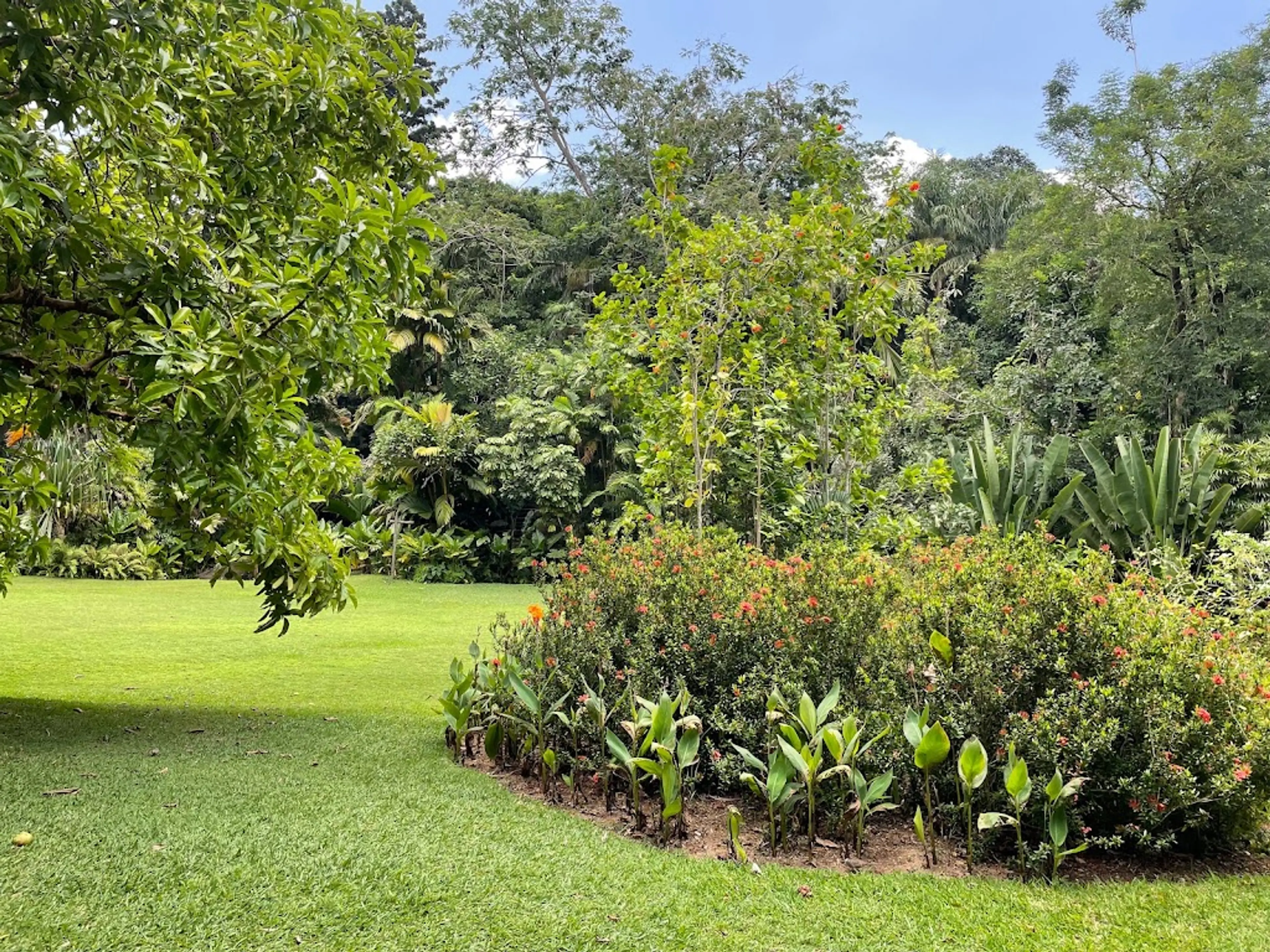
3Seychelles National Botanical Gardens
A 100-year old garden featuring a wide variety of endemic and exotic plants, including the famous coco de mer palm.
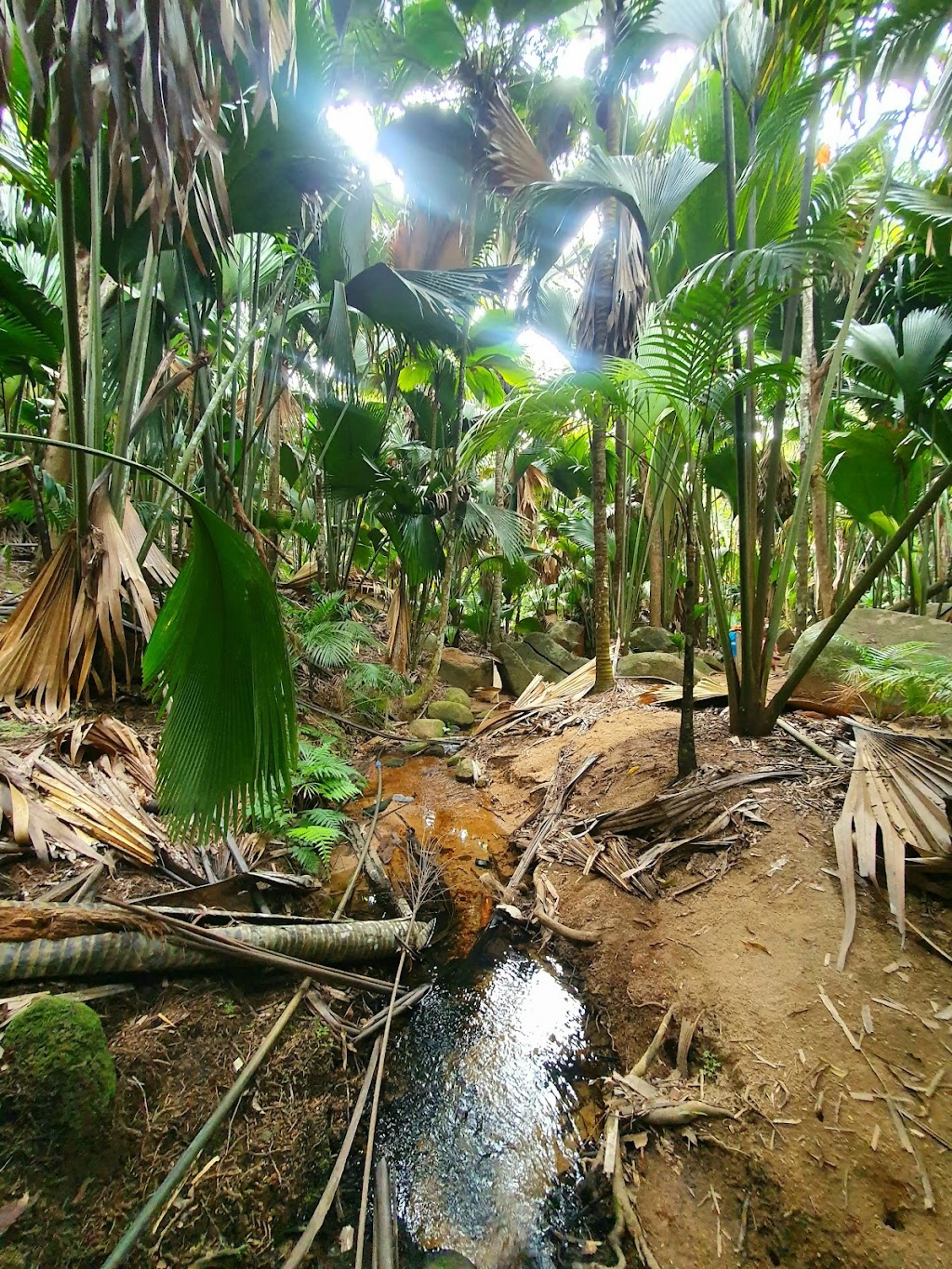
4Vallee de Mai Nature Reserve
A UNESCO World Heritage Site, this park is home to the rare coco de mer palm and a variety of bird species.
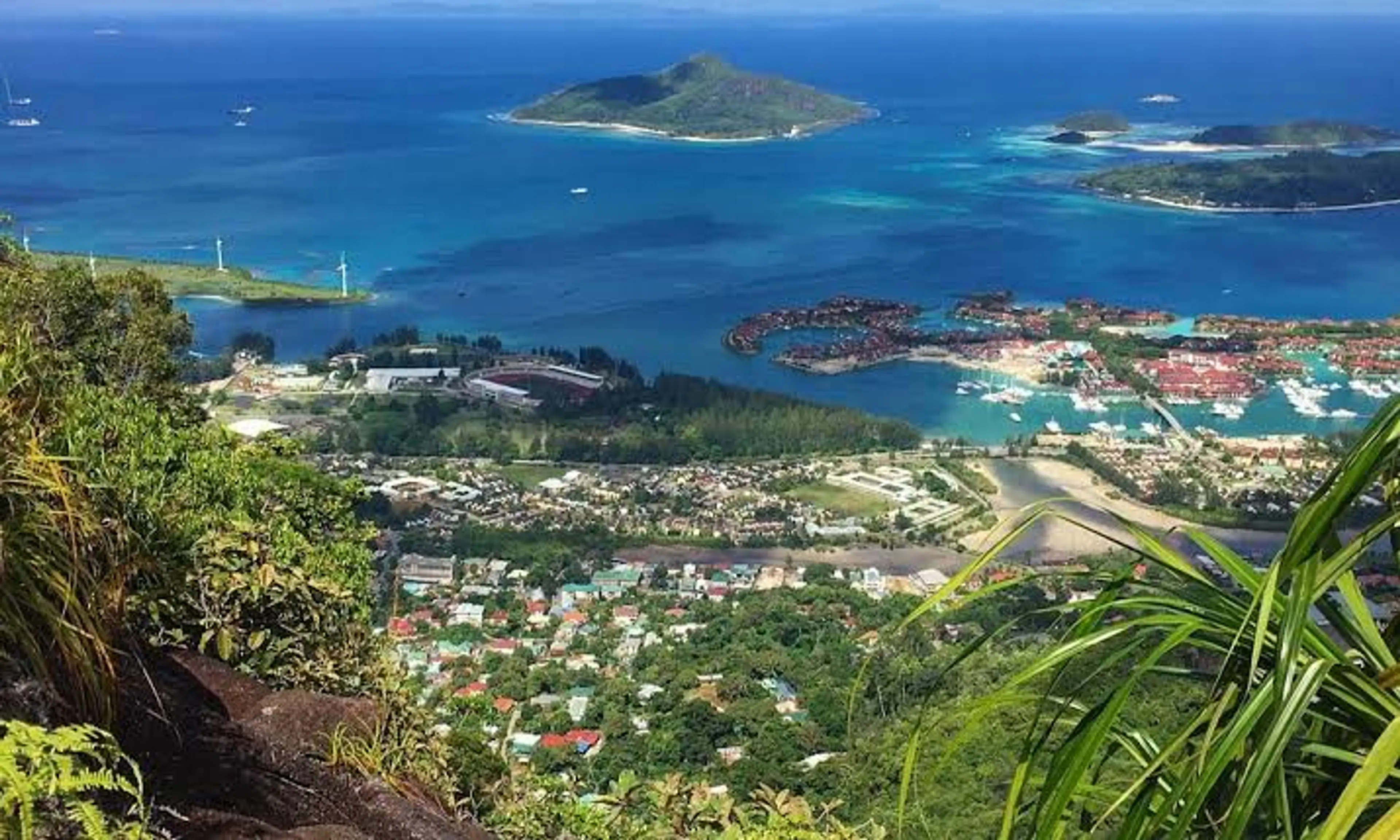
5Sainte Anne Marine National Park
A marine park consisting of six islands, known for its vibrant coral reefs and diverse marine life.
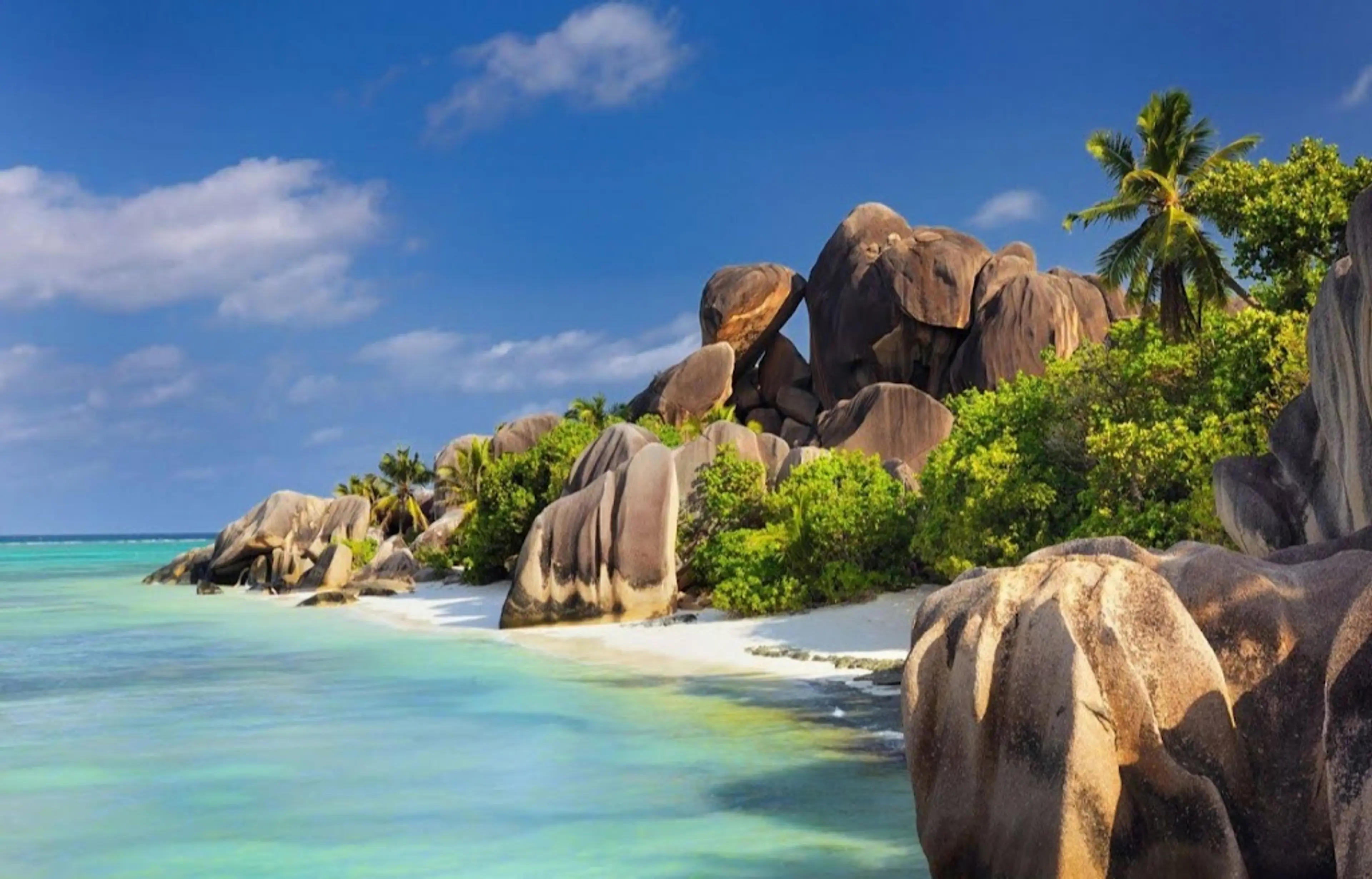
6L'Union Estate
A traditional coconut plantation showcasing the cultural heritage of Seychelles.
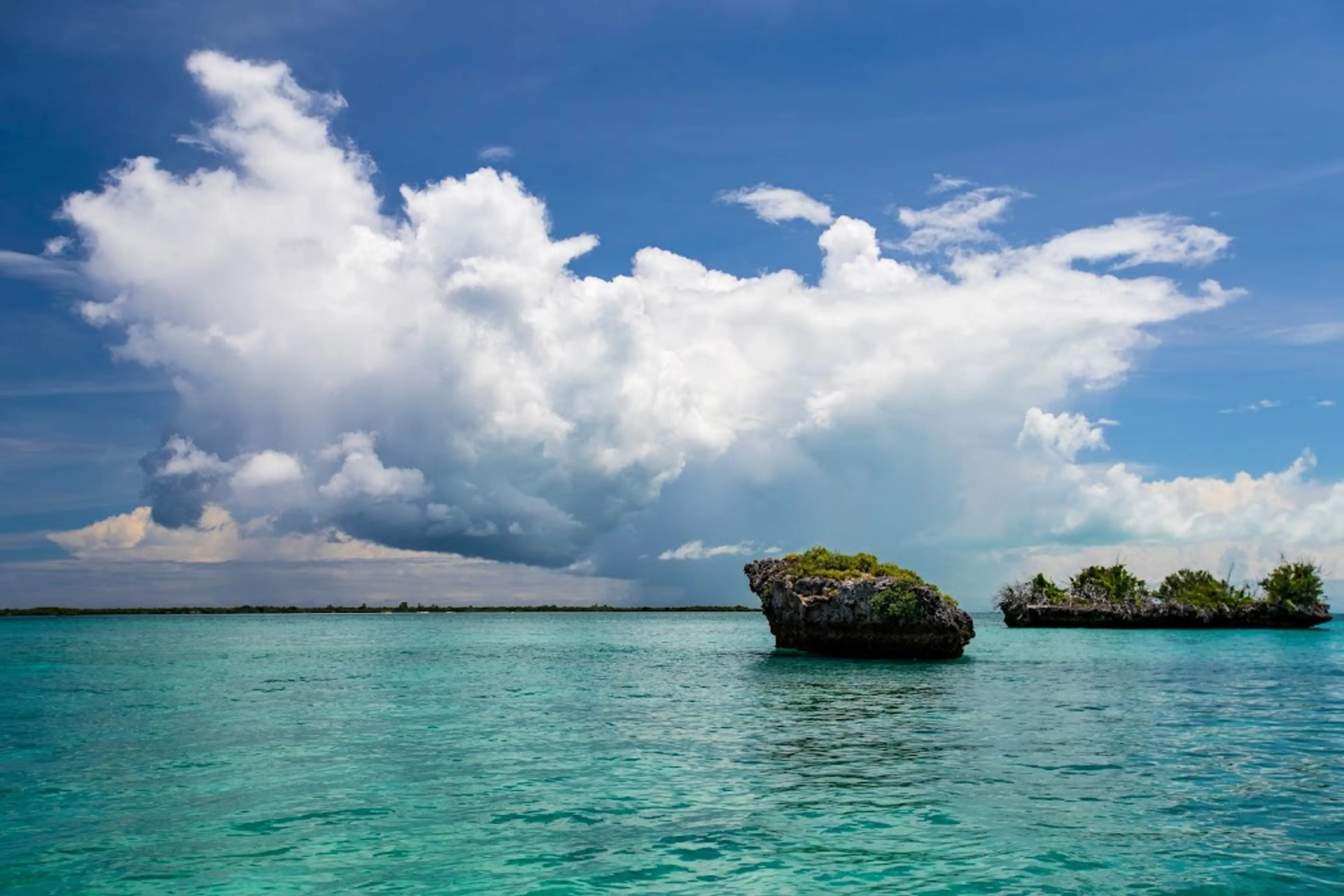
7Aldabra Atoll
The world's second-largest coral atoll, home to a diverse range of marine life and bird species.
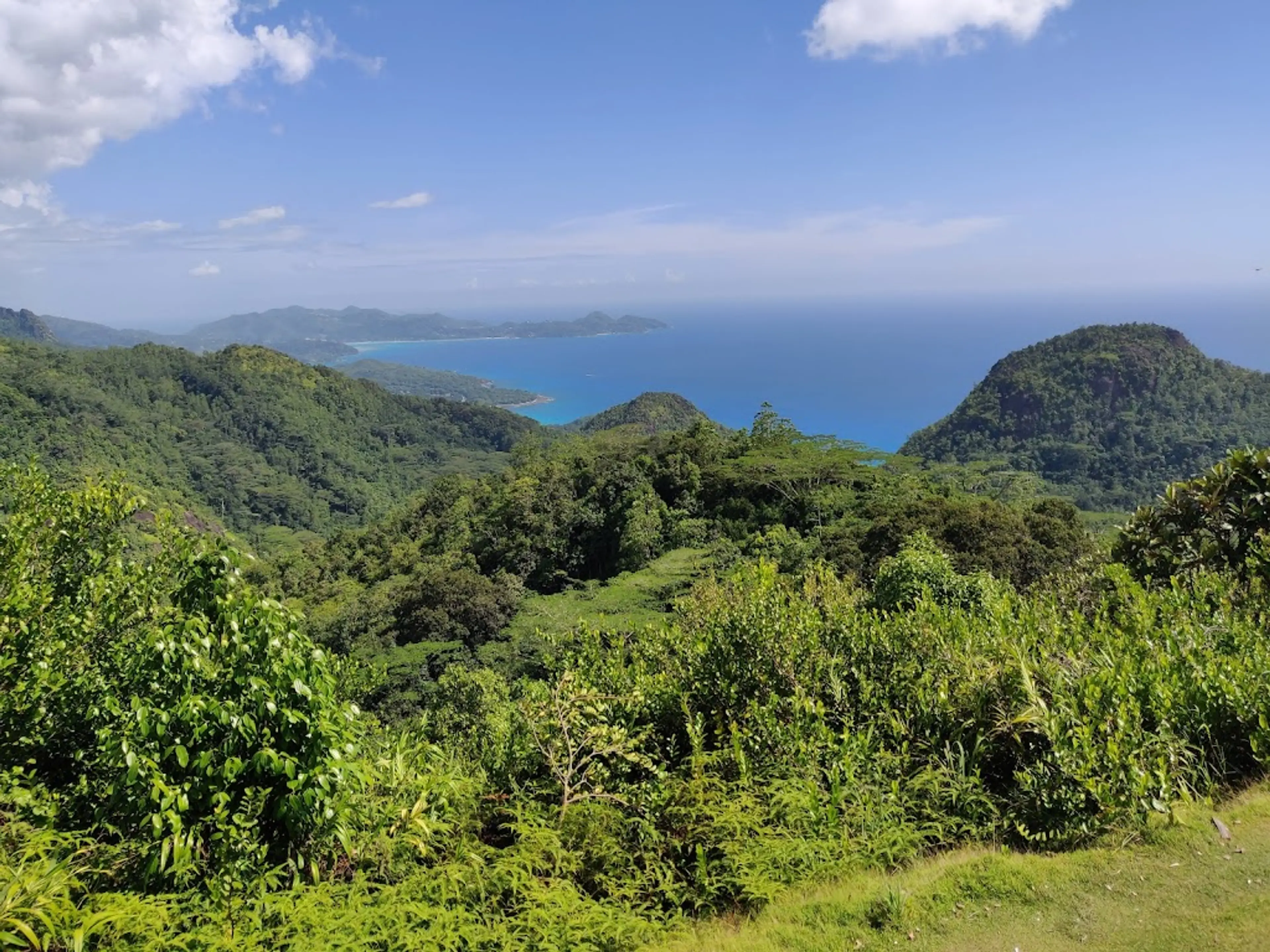
8Mission Lodge Lookout
A historic site offering panoramic views of Mahe. It was once a school for freed slave children.
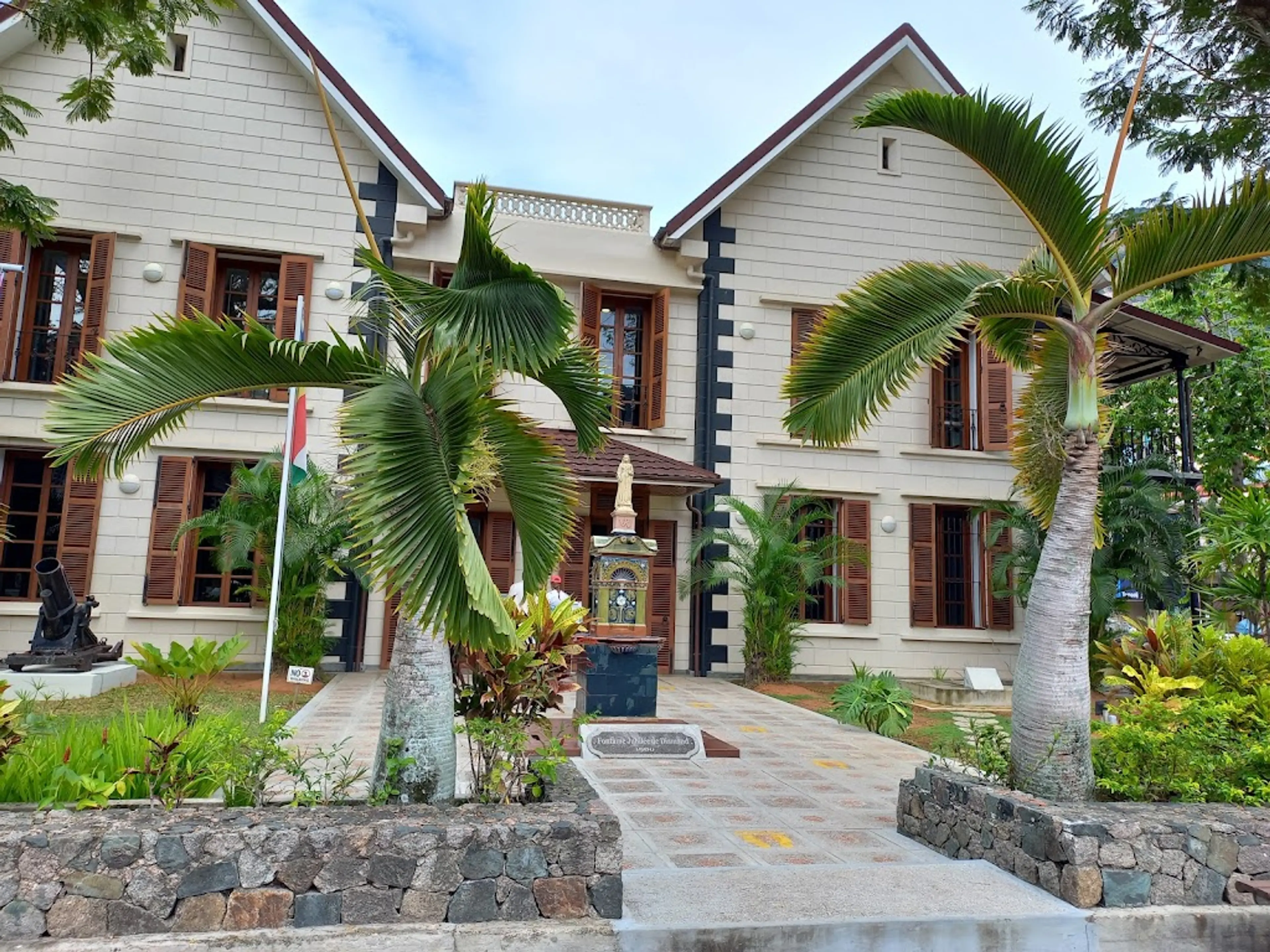
9Seychelles Natural History Museum
A museum showcasing the natural history of Seychelles, including its geology, flora, and fauna.
Local Food and Drinks (12)
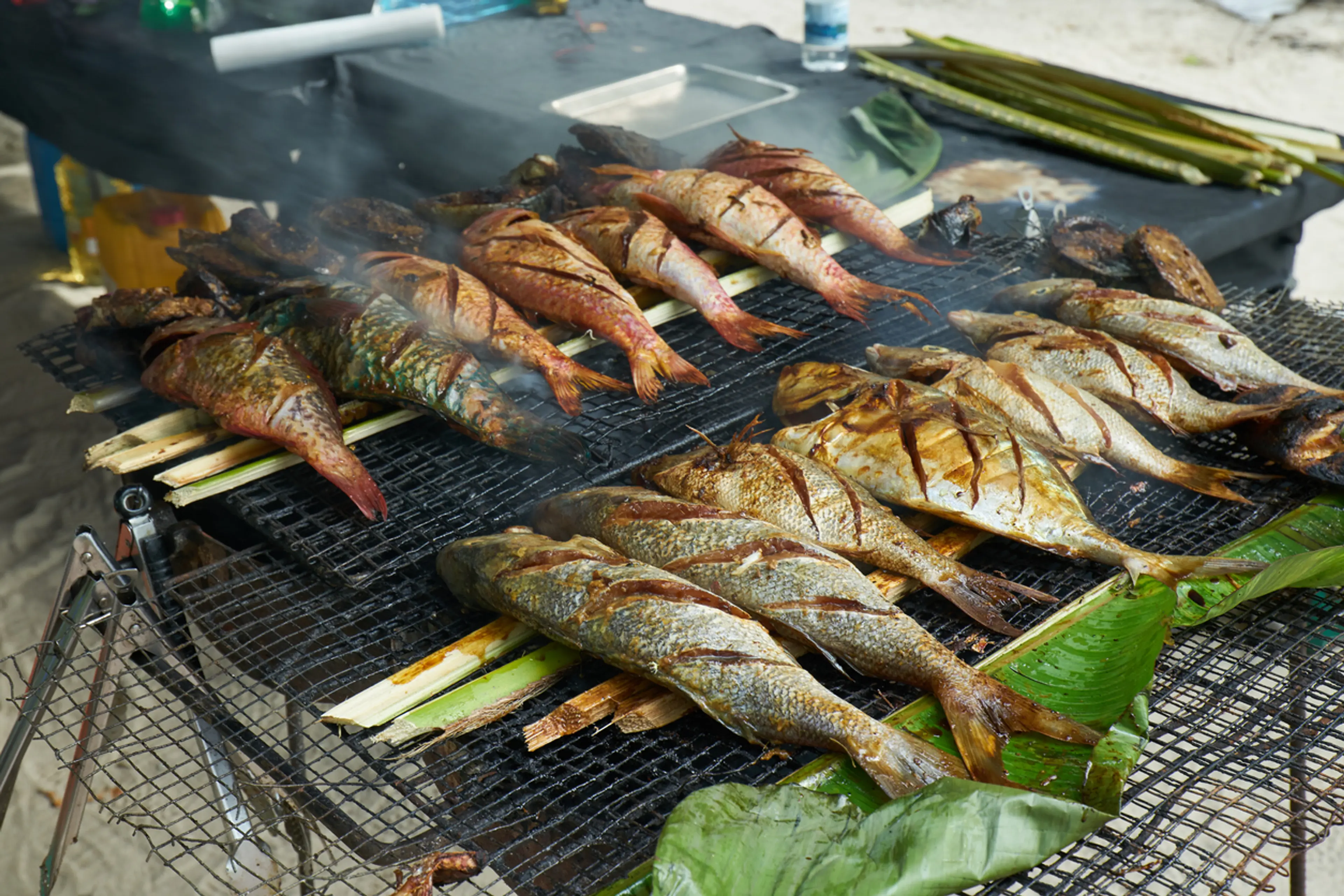
Grilled Fish
Grilled Fish is a popular dish in Seychelles, often prepared with fresh catch of the day. It's usually marinated in a blend of local spices and grilled to perfection.

Octopus Curry
Octopus Curry is a must-try dish in Seychelles. It's made with tender octopus cooked in a rich, spicy curry sauce.
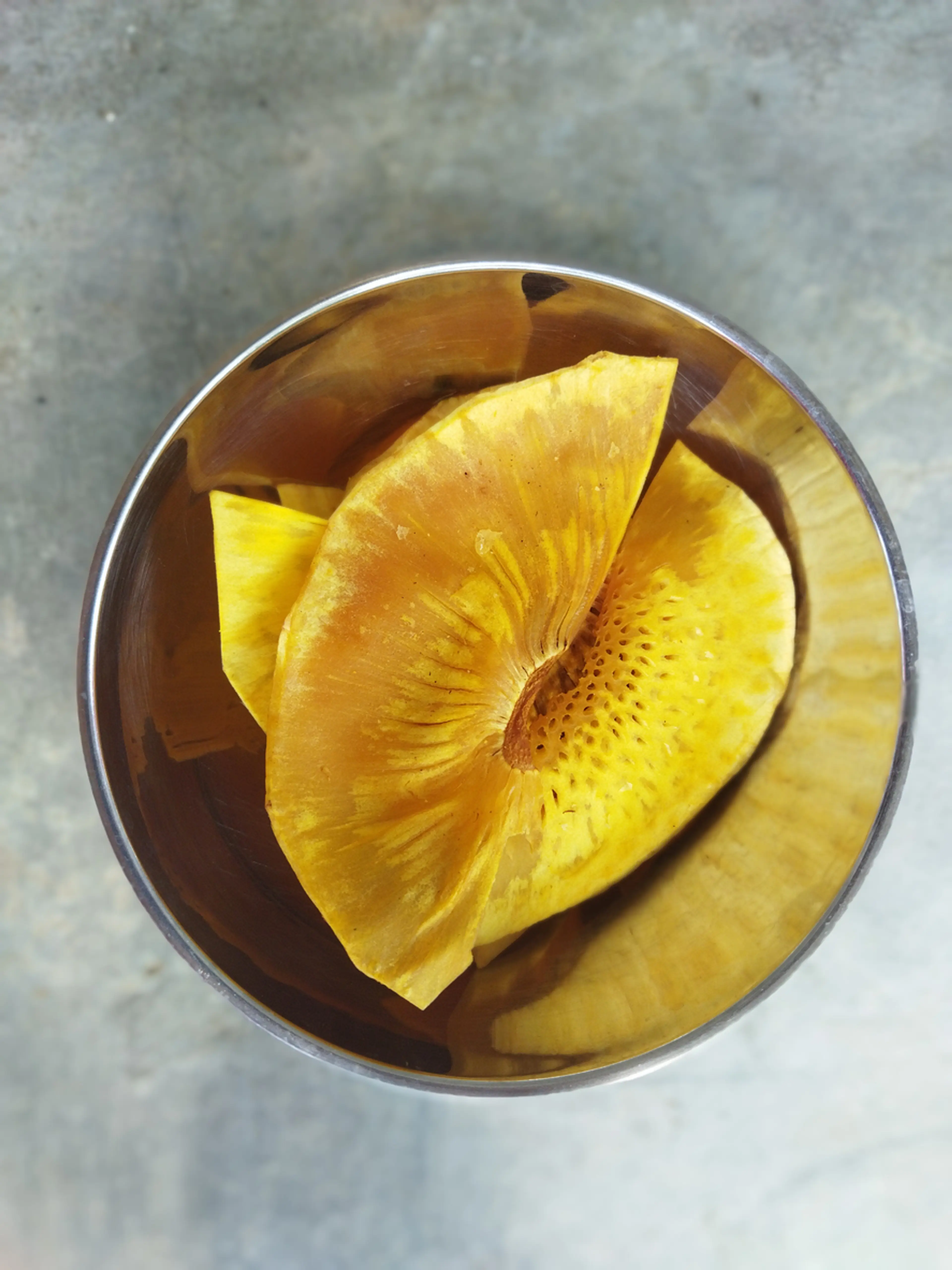
Breadfruit Chips
Breadfruit Chips are a popular snack in Seychelles. They are made from thinly sliced breadfruit that is deep-fried until crispy.

Ladob
Ladob is a traditional Seychellois dessert made from ripe plantains and sweet potatoes cooked with coconut milk, sugar, nutmeg, and vanilla.

Shark Chutney
Shark Chutney is a unique Seychellois dish made from boiled, skinned shark, finely mashed, and cooked with squeezed bilimbi juice and lime.

Kat-kat Banana
Kat-kat Banana is a Seychellois dessert made from bananas, coconut milk, and sugar. It's a sweet, creamy dish that's often served as a comfort food.
Bouillon Bréde
Bouillon Bréde is a traditional Seychellois soup made with local greens, meat or fish, and flavored with garlic, ginger, and chili.

Seybrew Beer
Seybrew Beer is a popular local beer in Seychelles. It's a light, refreshing lager that's perfect for the tropical climate.
Carotte Bananas
Carotte Bananas is a dessert made from bananas wrapped in banana leaves and cooked with coconut milk and sugar.
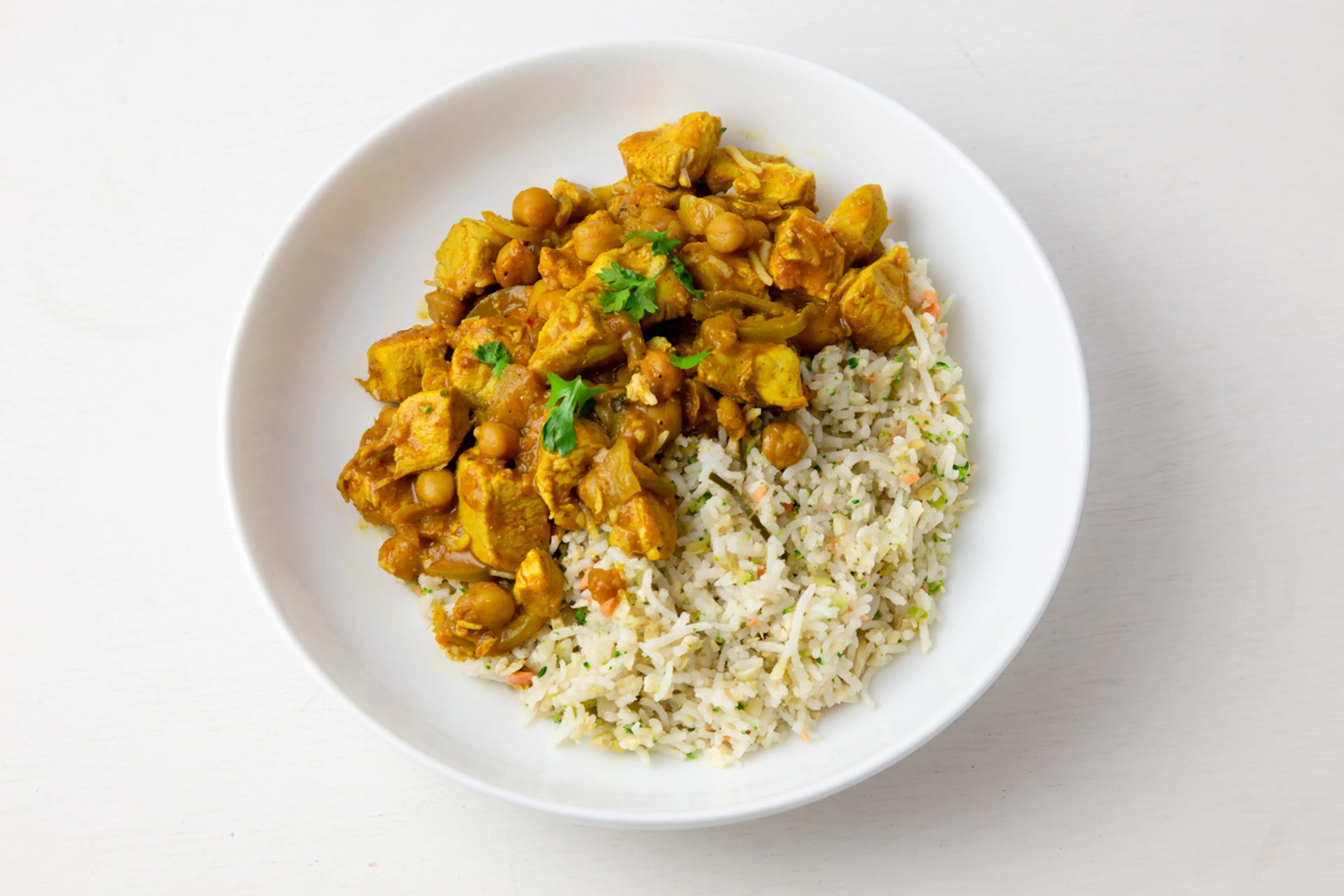
Coconut Curry
Coconut Curry is a staple dish in Seychelles. It's a rich, flavorful curry made with coconut milk, spices, and either meat or seafood.
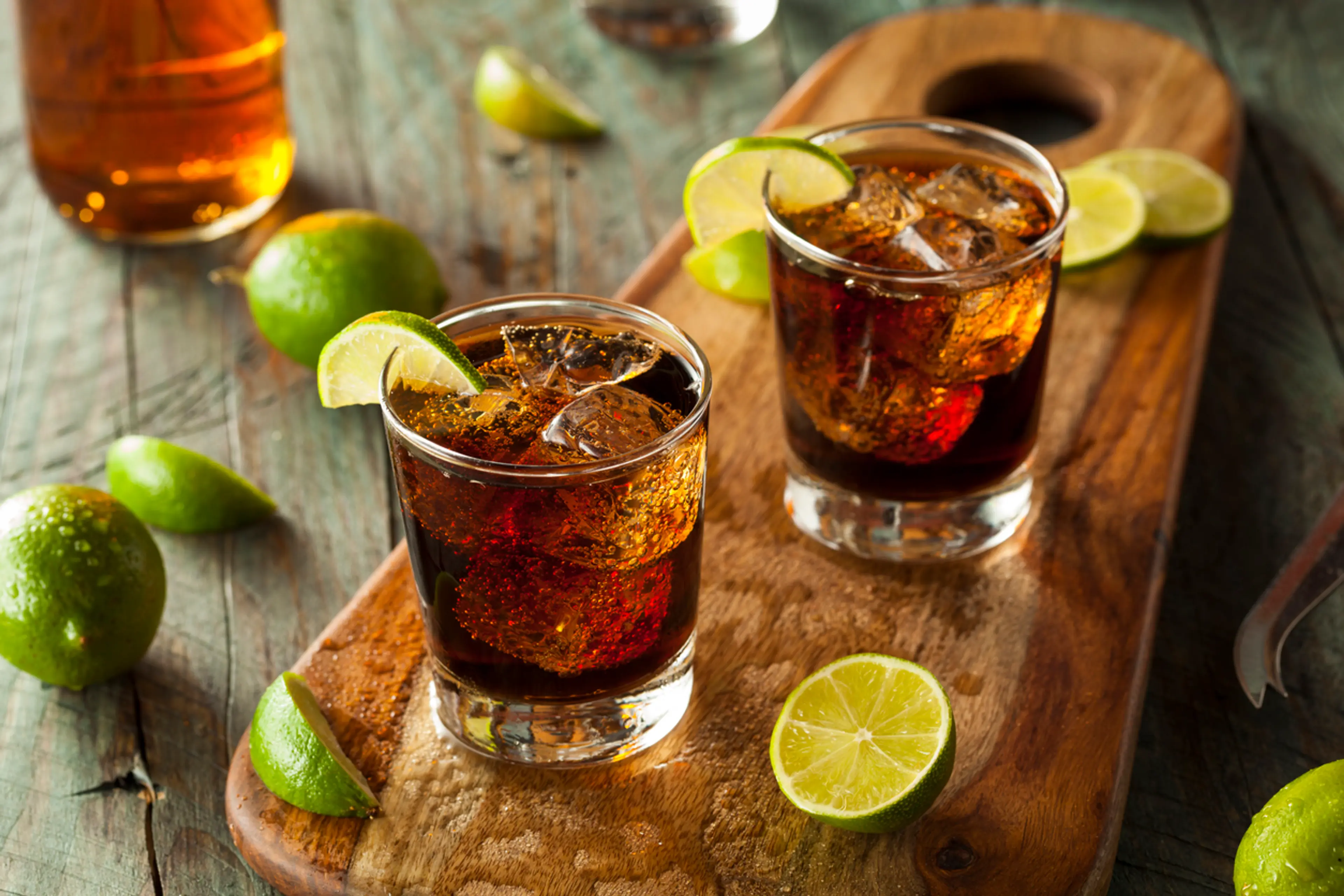
Takamaka Rum
Takamaka Rum is a locally produced rum in Seychelles. It's known for its smooth, rich flavor and is often enjoyed neat or in cocktails.
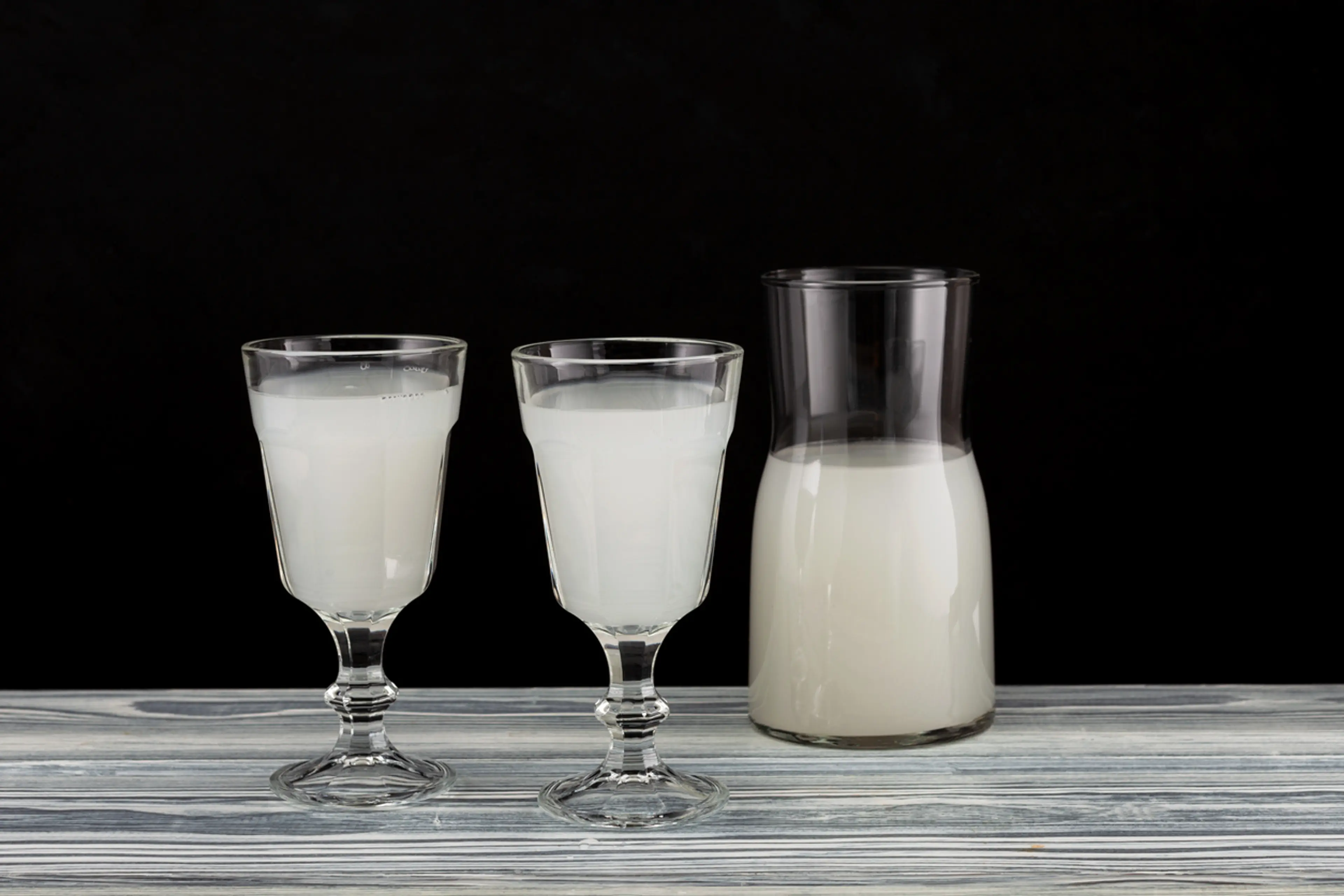
Palm Wine
Palm Wine is a traditional Seychellois drink made from the sap of the palm tree. It's a sweet, fermented beverage that's often enjoyed at social gatherings.
Best time to visit
The best time to visit Seychelles largely depends on what you want to do. For sunbathing, swimming, and snorkeling, the warmest and calmest periods are typically April-May and October-November. These are the times when the water temperatures are perfect and visibility is excellent for snorkeling. However, if you're interested in wildlife, the months of April, May, October, and November are also great for bird-watching as many birds breed during this period. For fishing, the best months are October to April. Overall, Seychelles is a year-round destination, but these specific periods offer the best conditions for certain activities.
How to get around
Car Rental
Renting a car is a convenient way to get around in Seychelles, especially on the main islands of Mahe and Praslin. You can rent a car directly from the airport or from various rental agencies around the islands. Remember, driving is on the left-hand side of the road in Seychelles.
Taxi
Taxis are readily available on the main islands of Mahe and Praslin. They are a convenient way to get around, especially for short distances or if you prefer not to drive. Taxis can be hailed from the street, booked in advance, or found at taxi stands in popular areas.
Bicycle Rental
Bicycles are a popular mode of transport on the smaller islands such as La Digue. It's a great way to explore the island at your own pace and enjoy the beautiful scenery. Bicycles can be rented from various rental agencies on the island.
Bus
Public buses are a cheap and efficient way to get around on the main islands of Mahe and Praslin. Buses run regularly throughout the day, and the routes cover most parts of the islands. However, they can get crowded during peak hours.
Ferry
Ferries are the main mode of transport between the islands. They operate regularly between Mahe, Praslin, and La Digue. It's a scenic and relaxing way to travel, but it can be affected by weather conditions.
Private Boat Charter
For a more luxurious and flexible way to travel between the islands, you can charter a private boat. This allows you to explore the islands at your own pace and visit less crowded spots.
Ridesharing
Ridesharing services are not widely available in Seychelles. However, some local companies offer similar services, especially in the main tourist areas. It's recommended to check with your hotel or local contacts for the best options.
Domestic Flights
For quick and convenient travel between the main islands, domestic flights are available. Air Seychelles operates regular flights between Mahe and Praslin, and charter flights to other islands can also be arranged.
Walk
Walking is a great way to explore the local areas, especially in the smaller islands and in the main towns. However, due to the hilly terrain and hot weather, it may not be suitable for long distances or for those with mobility issues.
Important information
Currency SCR
Time zoneUTC+4
Driving sideLeft
Emergency phone999
Drinking waterOpt for bottled water
Power sockets
Voltage240 V
Things to know about Seychelles as a first time visitor
1
Seychelles is a visa-free country, which means tourists from any part of the world can visit without a visa.
2
The official languages are Creole, English, and French. English is widely spoken in hotels and other tourist areas.
3
The local currency is the Seychelles Rupee (SCR). Credit cards are widely accepted in hotels, restaurants, and some shops.
4
Seychelles has a tropical climate. The temperature rarely drops below 24 degrees Celsius (75 degrees Fahrenheit) or rises above 32 degrees Celsius (90 degrees Fahrenheit).
5
The country is made up of 115 islands, but the main tourist areas are on Mahe, Praslin, and La Digue.
6
The tap water in Seychelles is safe to drink, but bottled water is recommended for those with sensitive stomachs.
7
The standard voltage is 240V and the frequency is 50Hz. The power sockets are type G, the same as in the UK.
8
Seychelles is in the Seychelles Time zone (SCT), which is 4 hours ahead of Greenwich Mean Time (GMT+4).
9
Public transportation is limited to buses and taxis. Car rental services are also available.
10
Seychelles is a safe country, but like anywhere, it is advisable to take standard precautions to protect your belongings.
11
The country has a strict policy on protecting its environment. Littering and coral damage, for instance, can result in heavy fines.
12
Healthcare facilities are limited, particularly on the smaller islands. It is recommended to have comprehensive travel insurance that covers medical evacuation.
13
Seychelles is a predominantly Catholic country. Visitors are advised to respect local customs and dress modestly when visiting religious sites.
14
The Seychelles' cuisine is a fusion of African, French, Chinese, and Indian influences. Seafood and rice are staple foods.
15
The Seychelles is home to unique wildlife. However, feeding or disturbing wildlife, including the famous giant tortoises, is prohibited.
16
There are no dangerous or venomous animals on the islands, but it's always a good idea to wear insect repellent to protect against mosquito bites.
17
Seychelles is a year-round destination. However, the best time to visit depends on what you want to do. For example, April-May and October-November are best for diving and snorkeling when the water is often calm and clear.
18
There are strict regulations on what you can take out of the country, including shells, plants, and animal products. Always check with customs before purchasing.
19
Tipping is not customary in Seychelles, but it is appreciated for good service.
20
Seychelles uses a 3-pin square plug like the United Kingdom. It's recommended to bring a universal adapter if your devices use different plugs.
Basic Seychellois Creole to know as a first time visitor
English phrase | Native phrase | Pronunciation | When to use it |
|---|---|---|---|
Hello | Bonjou | Bon-zhoo | Greeting someone |
Goodbye | Orevwar | Or-rev-wahr | Leaving or saying goodbye to someone |
Please | Silvouple | Sil-voo-play | When asking for something |
Thank you | Mersi | Mer-see | After receiving something or someone's help |
Yes | Wi | Wee | Agreeing with someone or something |
No | Non | Nawn | Disagreeing with someone or something |
Excuse me | Eskiz mwan | Es-keez mwan | Getting someone's attention or apologizing |
I'm sorry | Mwan dezole | Mwan de-zo-lay | Apologizing |
Do you speak English? | Ou kapab koze Angle? | Oo ka-pab ko-zay Ang-lay? | Trying to find someone who speaks English |
I don't understand | Mwan pa konpran | Mwan pa kon-pran | When you don't understand what is being said |
How much is this? | Konbyen sa i koute? | Kon-byen sa i koo-tay? | When you want to know the price of something |
Where is the bathroom? | Ki kote twalet la? | Ki ko-tay twa-let la? | When you need to find the restroom |
Help | Ed mwan | Ed mwan | In case of emergency or need of help |
Food | Manze | Man-zay | When looking for something to eat |
Water | Dilo | Dee-lo | When asking for water |
Beer | Bier | Beer | When ordering a beer |
Wine | Diven | Di-ven | When ordering wine |
Cheers | Sante | San-tay | When toasting |
Good morning | Bon maten | Bon ma-ten | Greeting someone in the morning |
Good night | Bon nwit | Bon nwee | Saying goodnight or leaving in the evening |
Packing List
Clothing
Lightweight clothing
Swimwear
Beach cover-up
Underwear
Socks
Sandals
Walking shoes
Sun hat
Sunglasses
Light jacket or sweater for cooler evenings
Toiletries
Travel-sized shampoo and conditioner
Body wash
Toothbrush and toothpaste
Deodorant
Razor and shaving cream
Sunscreen
After-sun lotion
Insect repellent
First-aid kit (band-aids, antiseptic wipes, tweezers)
Prescription medications
Contact lenses and solution (if needed)
Travel documents and essentials
Passport
Driver’s license or other ID
Credit and debit cards
Cash and traveler's checks
Travel insurance documents
Hotel and/or car rental reservations
Travel guidebook
Maps and directions
Electronics and gadgets
Smartphone
Charger for smartphone
Headphones
Camera
Charger for camera
Memory card for camera
Travel adapter for plugs
Miscellaneous items
Snacks for travel
Books or e-books
Travel pillow and blanket
Earplugs and eye mask
Reusable water bottle
Beach bag
Beach towel
Snorkeling gear
Umbrella or rain jacket
Weather Conditions
Seychelles, an archipelago in the Indian Ocean, is known for its tropical climate, which means it's warm and humid throughout the year. The average temperature ranges from 24°C (75°F) to 32°C (90°F), making it a perfect destination for beach lovers. The islands experience two main seasons: the northwest trade winds from October to March and the cooler southeast trade winds from May to September. The transition period between these two, in April and October, is characterized by calm and warm weather, making it an ideal time for wildlife spotting and scuba diving. During the northwest trade wind season, the weather is generally warm and wet, with occasional heavy rainfall. This is also the time when the sea is usually at its warmest, around 29°C (84°F). If you're planning to visit during this period, be prepared for sudden showers and consider packing a light raincoat or umbrella. The southeast trade wind season is relatively cooler and drier. The sea is slightly cooler, around 25°C (77°F), but still comfortable for swimming. This is the best time for sailing and windsurfing due to the steady winds. Don't forget to pack your sunscreen as the sun can be quite strong, even during this cooler season. Despite its tropical location, Seychelles is outside the cyclone belt, so severe storms are rare. However, it's always a good idea to check the weather forecast before your trip and plan your activities accordingly. Remember, the weather can vary between islands due to their geographical location, so it's advisable to check the specific forecast for the island you're planning to visit. Enjoy your trip to this tropical paradise!
| Month | Hi / Lo (°C) | Weather Overview |
|---|---|---|
January | 30° / 24° | January is the wettest month in Seychelles, with high humidity and occasional downpours. However, it's still warm with temperatures ranging from 24 to 30 degrees Celsius. |
February | 31° / 25° | February continues the wet season, with high humidity and temperatures ranging from 25 to 31 degrees Celsius. Despite the rain, it's a good time for bird watching as many species nest during this period. |
March | 31° / 25° | March sees the end of the wet season, with temperatures still ranging from 25 to 31 degrees Celsius. The weather is generally warm and humid, but less rainy. |
April | 31° / 25° | April is one of the best months to visit Seychelles, with calm seas and temperatures ranging from 25 to 31 degrees Celsius. It's a great time for snorkeling and diving. |
May | 31° / 25° | May marks the start of the dry season in Seychelles, with less humidity and temperatures between 25 and 31 degrees Celsius. It's a great time for outdoor activities and wildlife spotting. |
June | 30° / 24° | June is one of the coolest months in Seychelles, with temperatures ranging from 24 to 30 degrees Celsius. The weather is generally dry and windy, making it a good time for sailing. |
July | 29° / 23° | July is the coolest month in Seychelles, with temperatures ranging from 23 to 29 degrees Celsius. Despite the cooler temperatures, it's still a great time for beach activities and exploring the islands. |
August | 29° / 23° | August continues the cool and dry weather, with temperatures ranging from 23 to 29 degrees Celsius. It's a popular time for tourists, so expect some crowds at popular spots. |
September | 30° / 24° | September is a great time to visit Seychelles, with temperatures ranging from 24 to 30 degrees Celsius. The weather is generally dry and it's a great time for snorkeling and diving. |
October | 30° / 24° | October sees the start of the wet season, with increasing humidity and temperatures ranging from 24 to 30 degrees Celsius. Despite the rain, it's a good time for bird watching as many species nest during this period. |
November | 30° / 24° | November continues the wet season, with high humidity and occasional downpours. However, it's still warm with temperatures ranging from 24 to 30 degrees Celsius. |
December | 30° / 24° | December is a festive month in Seychelles, with Christmas celebrations and warm temperatures ranging from 24 to 30 degrees Celsius. Despite being part of the wet season, it's a popular time for tourists. |
Did you know?
Places near by Seychelles

Praslin Island
Second largest island of Seychelles known for its palm-fringed beaches and the Vallée de Mai Nature Reserve.
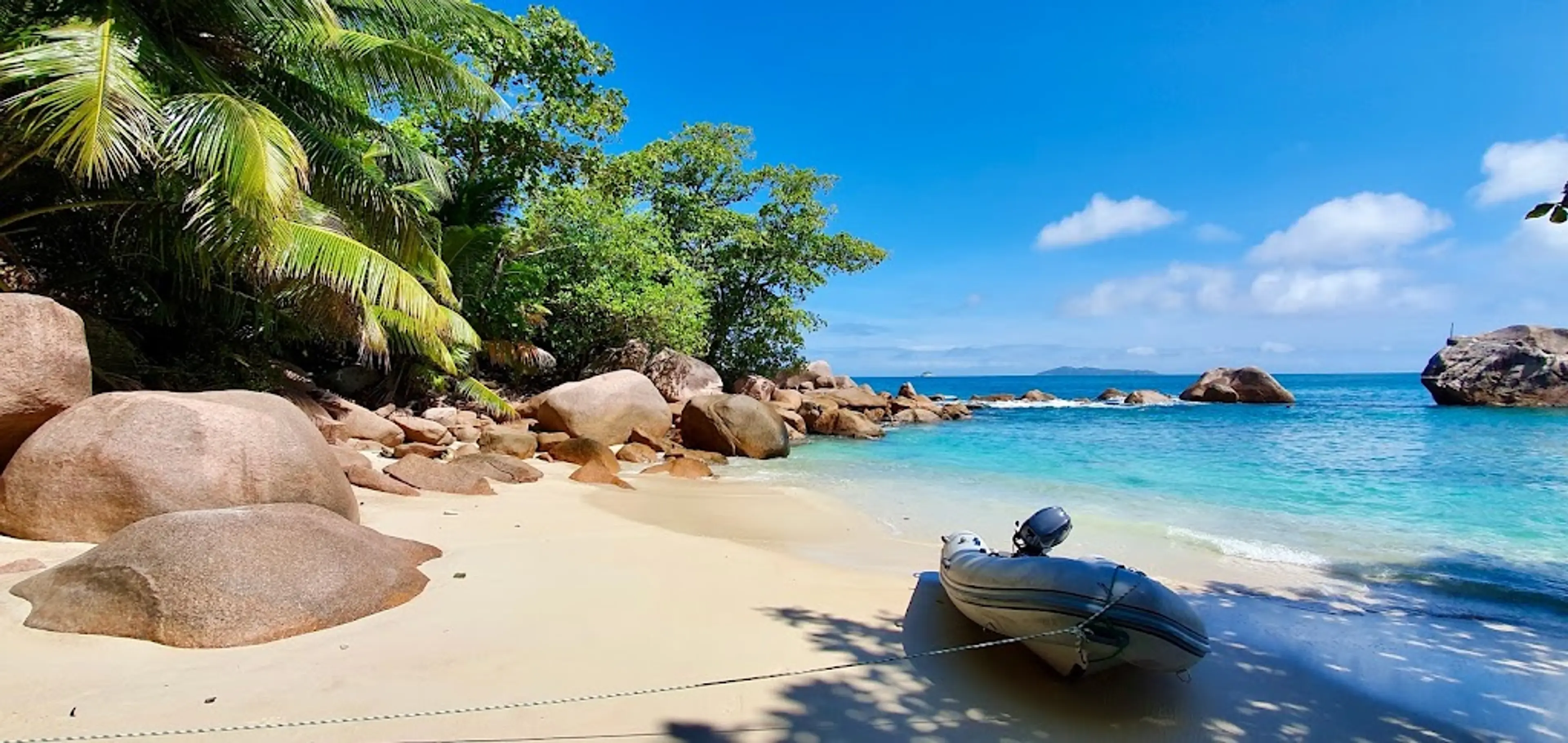
La Digue Island
Small island known for its beaches, like Anse Source d’Argent, dotted with granite boulders.

Curieuse Island
A small granitic island in the Seychelles known for its bio-reserve park and the Aldabra giant tortoise.
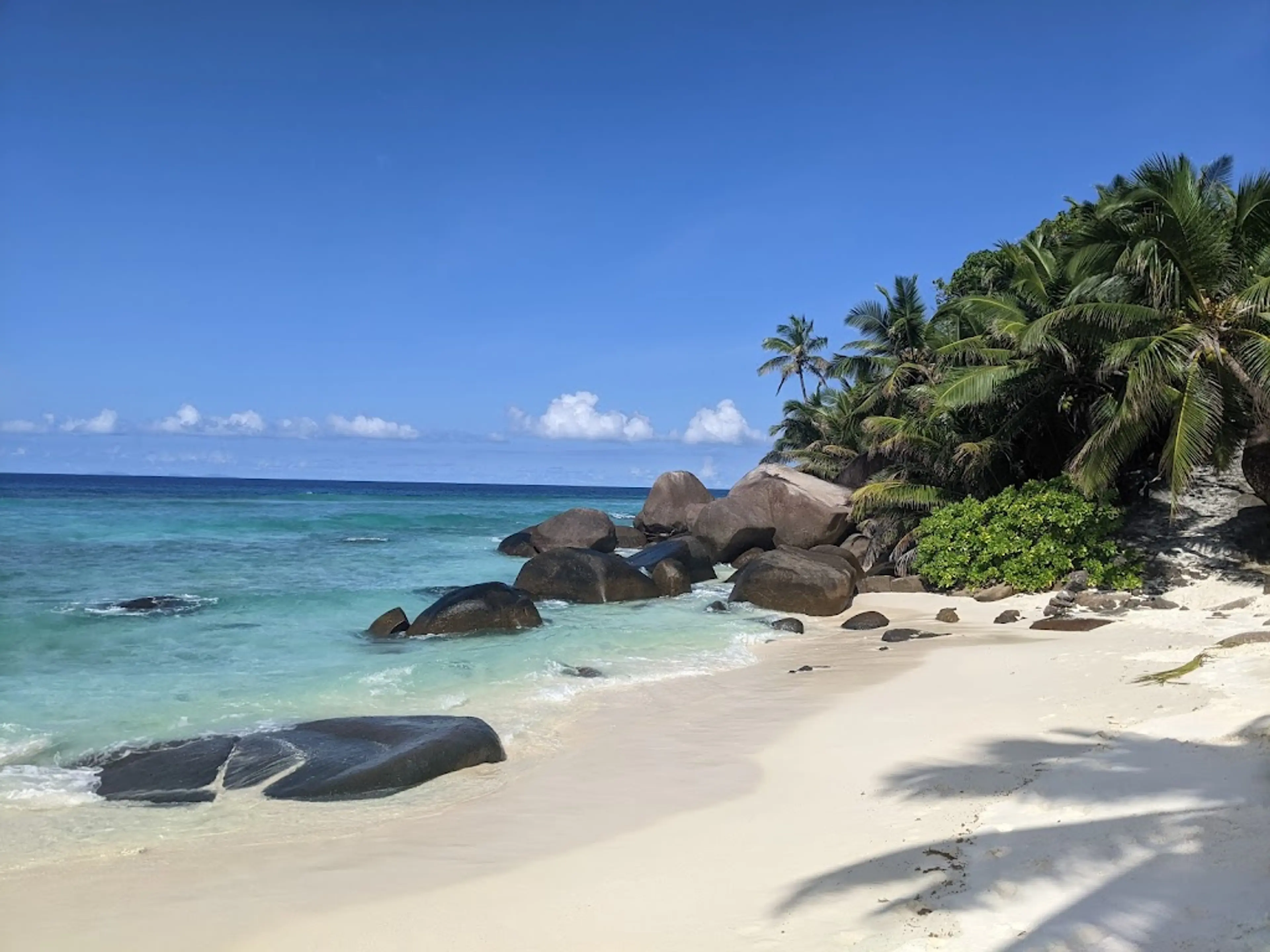
Silhouette Island
Third largest island of Seychelles, known for its biodiversity and is a marine national park.

Sainte Anne Marine National Park
A marine national park in the Seychelles, consisting of six islands off the coast of Mahé.

Madagascar
World's 4th largest island known for its unique biodiversity, with over 90% of its wildlife found nowhere else on Earth.

Mauritius
Known for its beaches, lagoons and reefs, as well as its diverse culture and history.

Comoros
A volcanic archipelago off Africa’s east coast, known for its coral reefs, rainforests and rare wildlife.

Reunion Island
A French department in the Indian Ocean, known for its volcanic, rainforested interior, coral reefs and beaches.

